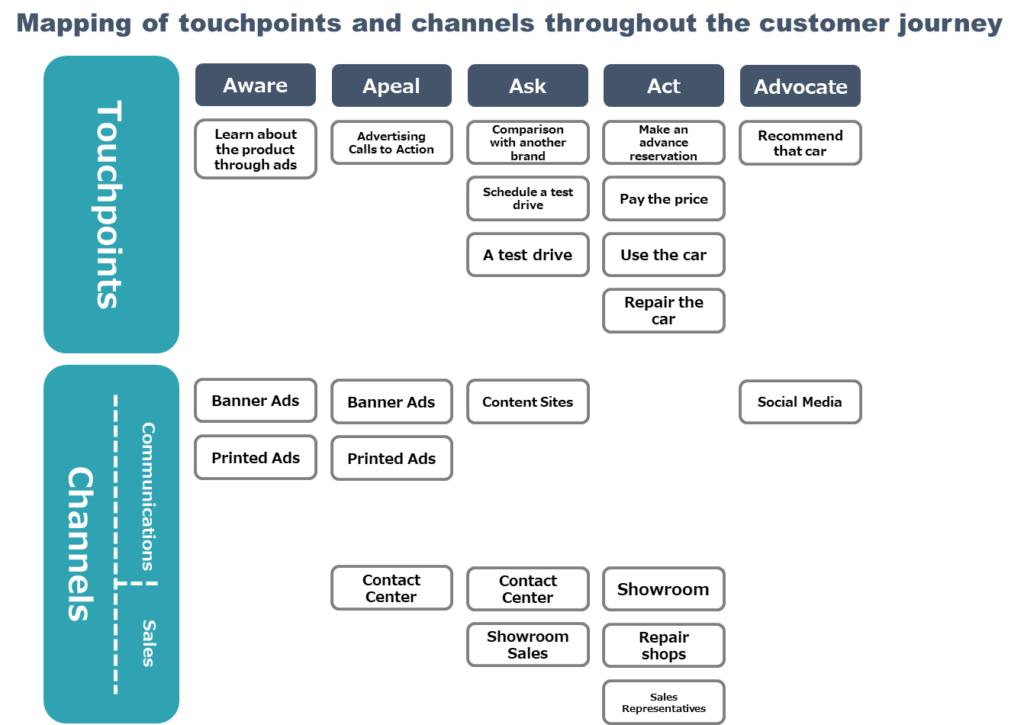Omni-channel marketing is a method of integrating various channels to create a seamless and consistent customer experience.
Customers with mobile devices in their hands are changing their buying style, spending less time considering and evaluating brands due to increased connectivity and mobility.
They don’t care about channels and move frequently and inexhaustibly, both online and offline. They expect a seamless and consistent experience from brands. The willingness of brick-and-mortar retailers to build their own e-commerce sites, and the willingness of e-commerce to develop physical stores, are prime examples of how to respond to this customer shift.
Contents
What is the key to achieving omnichannel marketing?
Brands can further optimize the customer experience based on the large amount of customer behavior data they have online and offline. Therefore, making omnichannel marketing work is crucial for today’s brands.
To make omnichannel marketing a reality, it is important to integrate the immediacy of online channels with the intimacy of offline channels.

The following points are particularly important for achieving omnichannel marketing
①Understand that the customer journey (5A) in the digital age is not a straight line and that there are many combinations of touchpoints and channels that customers pass through on the 5A
②Determine which touchpoints and channels are truly important to your company, both offline and online
③Create a system and organization to ensure that these channels can work together across boundaries
※Touchpoints: refers to points of contact between a company or brand and consumers
Steps to Achieve Omni-Channel Marketing
When trying to achieve omnichannel marketing, it is impossible to achieve everything from the beginning. It is necessary to follow a step-by-step sequence to achieve the final omnichannel marketing perfection.

*Customer journey and touch points in the case of an automobile manufacturer
Step 1: Map all possible touchpoints and channels throughout the customer journey
Touchpoints are represented in each of the 5As as the actual actions of the customer to know, buy, use, etc. Channels are the means that brands use to interact with customers (influence each other).
In practice, a single touchpoint may be tied to multiple channels, or a single channel may serve a variety of touchpoints. While this is very important for brands as it leads to increased market coverage, it also introduces complexity in designing an omnichannel marketing strategy. Therefore, brands need to strike the right balance between the two and design to guide customers at every step of the 5As.
Step 2: Identify the most important touchpoints and channels
Each customer experiences a different combination of touchpoints across various channels, and because of the wide variety of possible scenarios, omnichannel marketing tends to be complex.
From a cost standpoint, it is not realistic to try to address all scenarios, so the focus should be on the most common scenarios. For example, based on the Pareto principle, it is effective to define the top 20% of all possible scenarios as the most important touch points and channels for your company.
*Pareto law: 2:8 principle, which states that 20% of customers generate 80% of sales.
Step 3: Improve and integrate the most important touchpoints and channels
Once the most important touchpoints and channels are identified, funds should be concentrated there for improvement.
Since collaboration across channels is essential for this, the organizational structure should be reviewed if necessary. Ideally, the walls between departments should be removed and objectives, targets, and budgets should be integrated across all channels. Even if this is not possible, it is essential to have a system in which incentives are given to each other across channels.
In this way, it is important to identify the overall touchpoints, identify their importance, and then implement the PDCA cycle for improvement.

